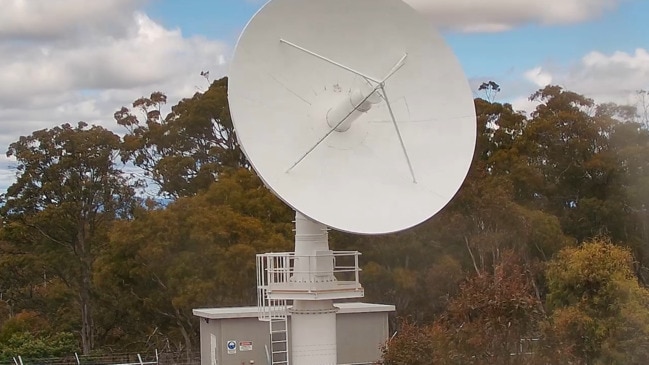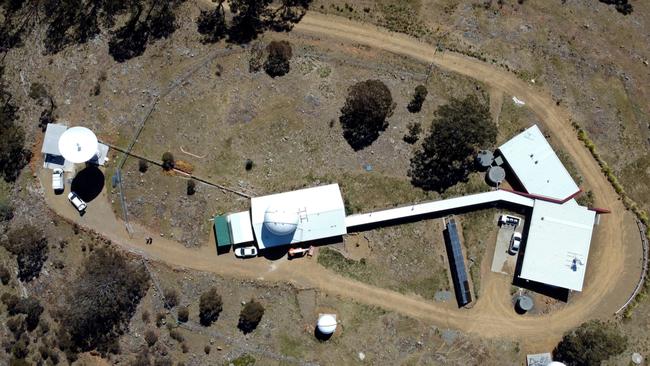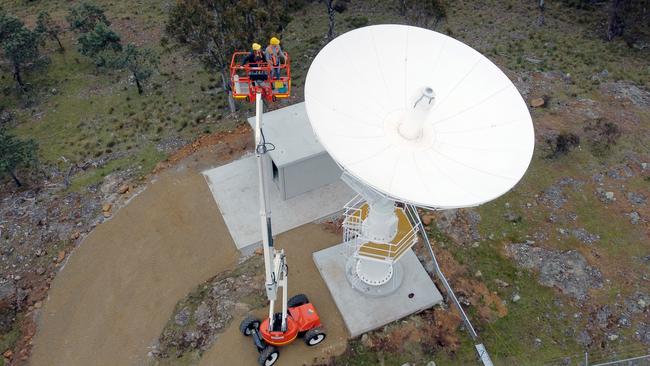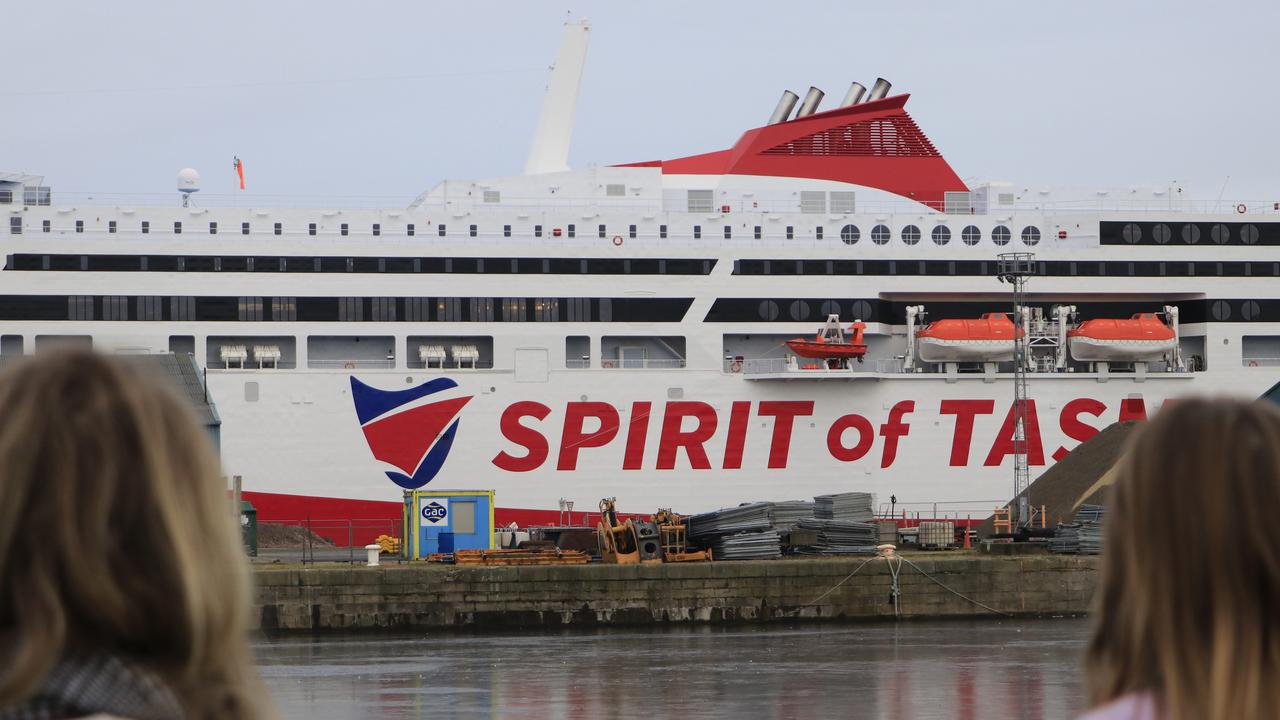University of Tasmania and the Australian Space Agency launches new antenna to transform satellite communication capabilities
A new space antenna has been unveiled, lifting the lid on space communication and ensuring that Tasmania’s future as a high-tech gateway to space is bright. PICS + VIDEOS >

Tasmania
Don't miss out on the headlines from Tasmania. Followed categories will be added to My News.
A new space antenna has been unveiled by the University of Tasmania at Greenhill Observatory, ensuring “Tasmania’s future as a high-tech gateway to space is bright” Vice-Chancellor Professor Rufus Black said.
The new $2m communications antenna will provide ground support on space missions and reduce the chance of collisions for spacecraft.
Dean of School of Natural Sciences at UTAS Simon Ellingsen said it’s the southernmost antenna of its kind in the world, adding to the nation’s Southern Skies Network.
“In the past, we have only been able to listen to transmissions from spacecraft but now we are able to transmit messages through radio frequency communications to spacecraft, sending commands as well as receiving data.”

The 7.3-metre antenna will be operated by the University and provide space-to-earth communications for low-earth-orbit satellites. Professor Ellingsen about 10,000 satellites have been launched into space in the last few years.
“Globally, satellites are being launched into space at an increasing rate. To launch safely and to keep the assets safe once they are in orbit, we need to know where the stuff already up there is,” Professor Ellingsen said.
“The growth is exponential, so we are working on innovative techniques and technologies to tackle the challenges this brings, and our new antenna plays an important role in this work.”
Funded jointly by the Australian Government’s Space Infrastructure Fund and UTAS, the antenna aims to expand the Australian space sector and advance national space infrastructure.

Head of the Australian Space Agency Enrico Palermo said the fund has been critical to address gaps in the country’s space infrastructure for “Ensuring Australia can speed up delivery of space-based services and increase its space contribution globally.”
Mr Palermo said Australia is an expert when it comes to spacecraft tracking and communications, and the country’s location puts it at an advantage.
“University of Tasmania’s upgraded facilities will further advance Australia’s expertise in this area and open doors to exciting new research and commercial partnerships,
“Space technology, like satellites, is critical in supporting our everyday life and national wellbeing, and the new antenna will track and protect vital technology in space that we rely on here on Earth.”

Professor Black said the partnership between the Australian Space Agency and partners like SpaceX, Skykraft, and Hensoldt would offer new opportunities for Tasmania’s space-related business ecosystem.
“The University has a long and distinguished history of space and astronomy research dating back to the 1950s when the world’s first radio astronomer Grote Reber moved to Tasmania to pursue his research,” he said.
“Reber saw the undeniable value of our unique geographic situation, close to the geomagnetic pole and perfect for viewing the southern skies and southern lights ‘Aurora Australis’; since then, we have developed a world-class team and infrastructure that supports their work.”


